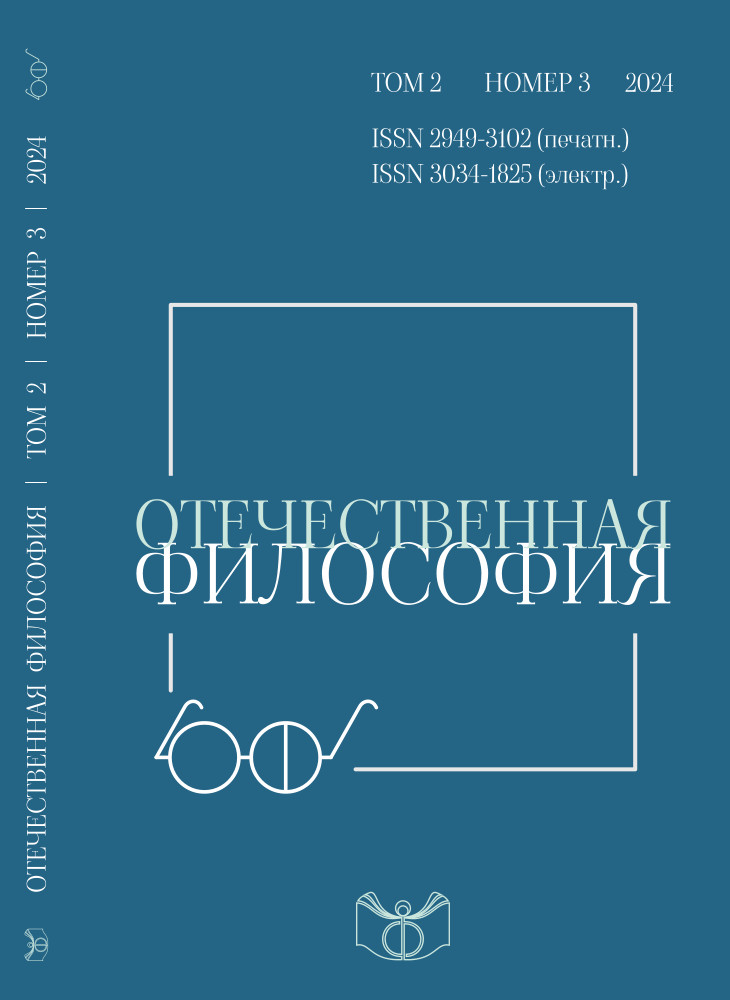Philosophy of Science after Heidegger: Vladimir Bibikhin’s View
Keywords:
current philosophy, philosophy of science, Martin Heidegger, Vladimir Bibikhin, speculative realismAbstract
Although Heidegger’s assertion that “science does not think” at first sight implies that an engagement with his philosophy is untenable for those philosophical frameworks that advocate for scientific rationality as genuinely, rather than illusorily, exploring the world, current philosophy reveals references to Heidegger, including among philosophers whose perspectives on science diverge from his. However, these works typically do not aim to develop the core tenets of Heidegger’s thought. This article contends that a serious engagement with science within a philosophical con text, which directly extends Heidegger’s ideas, is indeed feasible, as evidenced in the writings of Vladimir Bibikhin. Building upon Heidegger’s critique of technology, Bibikhin reframes Heideggerian critique of science by transforming the concept of Gestell into a notion Bibikhin describes as “robbery”, which refers to non-technical thought that fails to evolve into rigorous scientific inquiry. Bibikhin posits that a science liberated from such “robbery” is attainable, adhering to the criterion of recognizing the thing which is being learned as one’s own. He identifies the potential for such a science in the work of Leonardo da Vinci. This perspective enables Bibikhin to actively engage with empirical facts and concepts from the natural sciences throughout his exploration in The Woods. Furthermore, this transformation is indicative of Bibikhin’s non-dogmatic approach to Heidegger’s ontic-ontological difference. Within Bibikhin’s framework, science is both existentially and ontologically oriented toward the world and what exists, positioning him within the contemporary philosophical discourse of realism.


